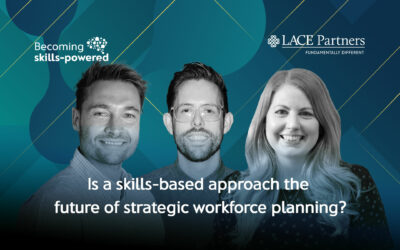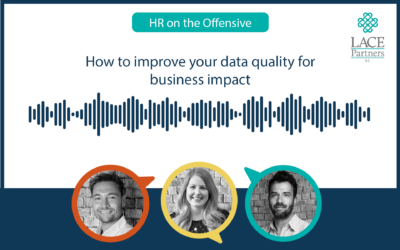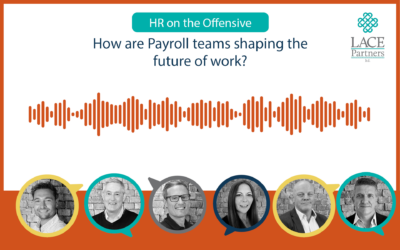Key takeaways:
- We define a skills as specific abilities and techniques a person can perform.
- We define competency as how you apply your knowledge and skills in a professional context.
- A skills based approach helps in deploying employees to various roles or projects based on skillsets, not just job titles.
- Competencies don’t disappear but evolve by integrating more dynamically with skills.
Despite skills-approaches becoming increasingly popular, unpacking some of the nuances can be confusing. Part of our Becoming skills-powered campaign, this article from Gemma Ryall looks to demystify some of the language around skills to help you understand how skills and competencies fit together and how to leverage them for skills success.
In your journey to becoming skills-powered, distinguishing between skills, behaviours, and competencies can be a challenge. Often used interchangeably, they represent distinct, yet interconnected concepts.
To clarify, we’ve broken these terms down into a formula to show how these component parts fit together:
Skills + Knowledge + Behaviour + Application = Competency
Skills: The specific abilities and techniques a person can perform
Knowledge: The theoretical understanding and information a person has
Behaviour: The attitudes and approach displayed
Application/performance: How effectively the skills, knowledge, and behaviours are put into practice in real-world situations
Competency: Is the integrated and effective use of skills, knowledge and behaviours to achieve successful outcomes in a specific area. A competency is not just about what you know or can do, but how you apply that knowledge and skills in a professional context.
What is the difference between skills and competencies?
Skills and competencies are related but distinctly different concepts. A skill is a specific learned capability to perform a task, such as programming in Python or operating machinery. In contrast, a competency is a broader, more complex combination of knowledge, behaviours, attitudes and skills that enable effective performance in a role.
Key distinctions include:
- Skills are technical and measurable, while competencies encompass broader performance indicators
- Skills focus on “what” an employee can do; competencies address “how” they do it
- Skills are typically more narrowly defined and easier to assess
Skills approaches offer several strategic advantages:
- Standardisation across organisations: Skills can be viewed independently of specific roles, enabling a comprehensive understanding of workforce skills and abilities beyond departmental boundaries – making it easier to build a skills taxonomy or common language for skills.
- Trackable development: Skills are more targeted and measurable, allowing for precise learning and development interventions aligned with individual career goals and clarity on whether an organisation is closing the skills gap.
- Talent marketplace enablement: Skills facilitate more flexible workforce deployment, making it easier to match employees with opportunities across the organisation.
Adapting competencies for a skills-based organisation:
In a skills-based organisation, competencies remain valuable but are reframed. Instead of traditional competency frameworks, organisations are now choosing to integrate competencies more dynamically with skills. This enables:
- More granular, adaptable talent development
- Clearer alignment between individual skills and organisational needs
- Enhanced flexibility in workforce planning increasing productivity and engagement
As a first step, you may choose to focus purely on skills and then evolve to have a skills-based competency models that provide context and depth to skills assessment.
Skills and competencies utopia:
Your ultimate goal is a holistic, integrated approach that recognises both skills and behavioural qualities that contribute to individual and organisational success.
In our experience however, getting bogged down in the details here is a hurdle which can slow many organisations transition to skills success. Defining skills and understanding what skills you need to push the needle on the outcomes you want is an iterative process. What’s more, it’s likely that the skills you need will change, so you need to be adaptable and focused on why you are thinking about skills in the first place. What business challenge are you looking to rise to?
There are around six key skills solutions – ranging from skills-based hiring through to skills-based workforce planning. Each meets a different business need, and its success is measured in accordance with this. Building a clear value case for your skills approach will therefore help you clarify which skills you want to focus on and how you want to weave competencies into your framework.
Our advice? Keep it simple to start and scale up the complexity of your approach.
If you have questions around your skills and competencies, reach out to the team via the form below! And learn more about skills strategy, foundations and much more in our Becoming skills-powered series.






